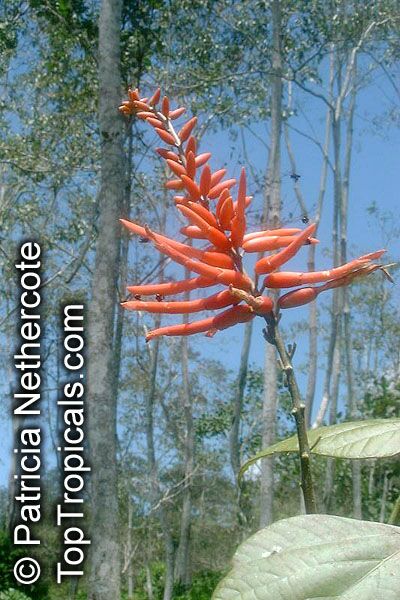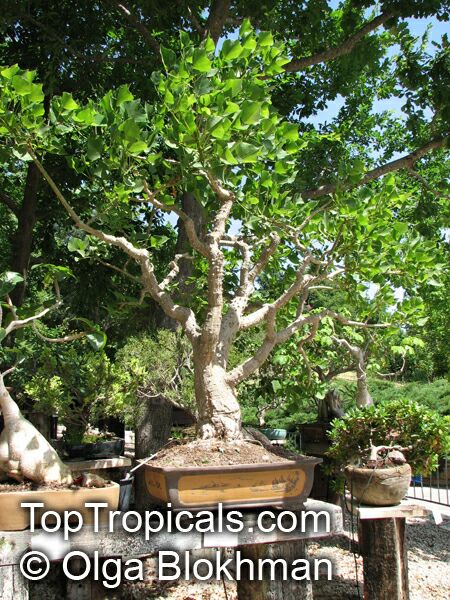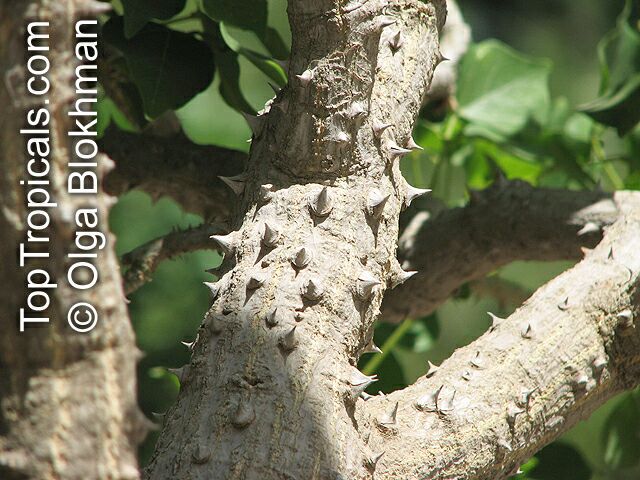Erythrina coralloides (Naked Coral Tree)
Top Tropicals Plant Encyclopedia
Botanical name: Erythrina coralloides
Common name: Naked Coral Tree
Family: Fabaceae
Subfamily: Faboideae
Origin: Mexico










Often called Naked Coral Tree or Naked Mexican Coral Tree, Erythrina coralloides is a deciduous plant with a small tree growth of 10-20ft in height. Native to Mexico and found through Central America, this tree can be used for bonsai and is especially popular in tropical and subtropical climates where it has become an invasive species.
Erythrina coralloides is a visually stunning tree that is ideal for landscapes when the bright yellow, off-white and red, crimson, vinous flowers burst in January and February. Since the flowers come out before the foliage, this tree creates a stunning addition to any landscape. The flowers also attract a variety of butterflies, hummingbirds and other pollinators while providing an excellent nectar source.
This plant prefers full sun but can also tolerate some levels of semi-shade. It is drought tolerant but prefers moderate water and easily grows in warm climates. However, Erythrina coralloides is also mature plant cold hardy down to 30s F for a short time, meaning it can thrive in USDA Zones 9-11.
When grown in colder climates, it is especially important to provide the tree with adequate protection from strong winds. When planted in a small pot, it is a good idea to keep the pot indoors during winter months and the plant should be taken care of throughout this period with adequate watering and pests and disease control. To preserve the bonsai shape and encourage the desired branch structure, it is best to prune the tree in the summer when temperatures are more moderate.
It is important to note that the seed of this plant, Erythrina coralloides, is poisonous if ingested. Therefore, it should be handled with caution specifically around small children, pets and livestock.
Similar plants: Erythrina coralloides (Naked Coral Tree)
- Butea monosperma (Flame of the Forest)
- Erythrina abyssinica (Coral Tree)
- Erythrina amazonica (Amazon Coral Tree)
- Erythrina bidwillii (Indian Coral Tree)
- Erythrina caffra (South African Coral tree)
- Erythrina crista-galli (Cry Baby Tree)
- Erythrina decora (Namib Coral Tree)
- Erythrina edulis (Chachafruto)
- Erythrina fusca (Cape Kaffirboom)
- Erythrina herbacea (Coral tree)


